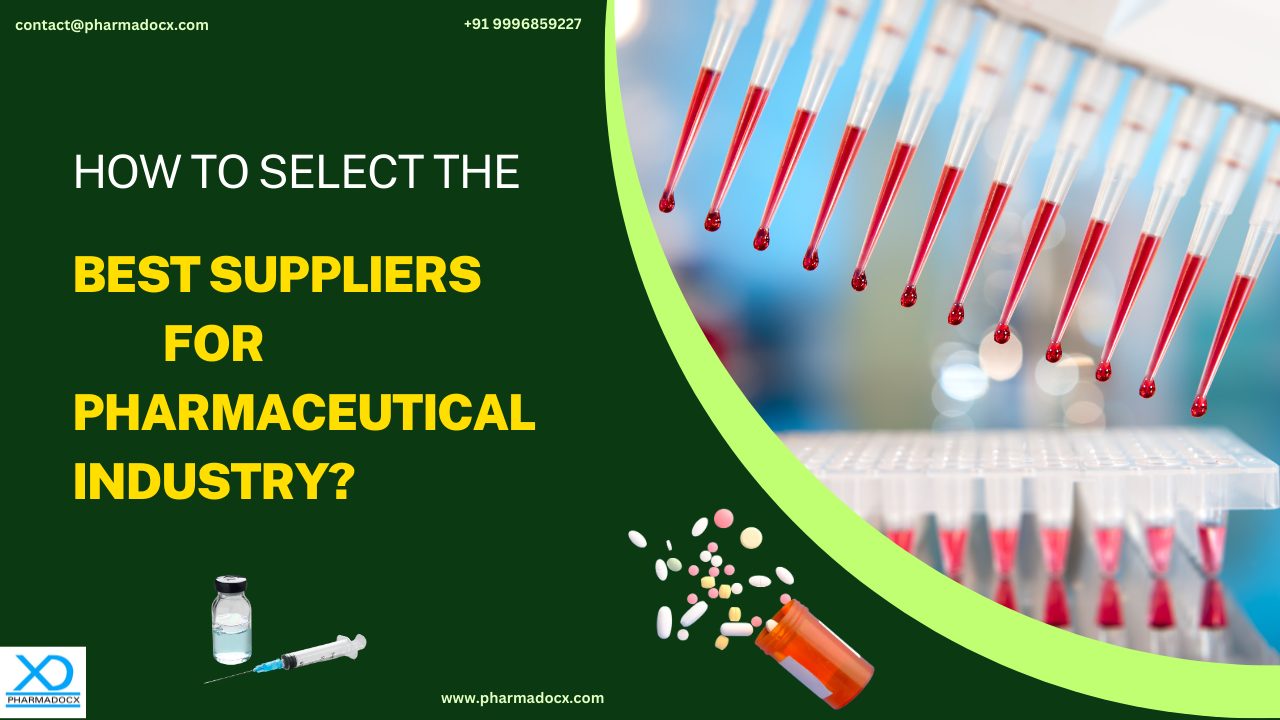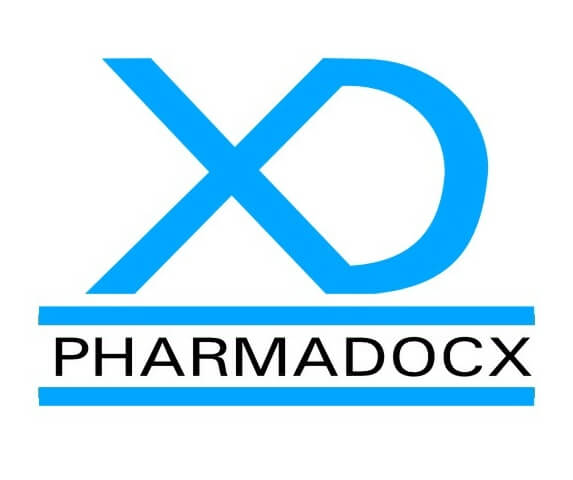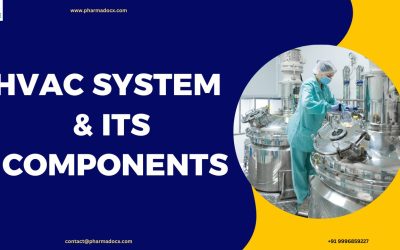The quality of drugs being manufactured largely depends on the inputs and raw materials used for their production. Thus, suppliers of pharmaceutical industry raw materials have a critical role in the success of this industry. Hence, it is vital to evaluate the regulatory compliance of pharmaceutical industry suppliers to manufacture safe and effective drugs. Furthermore, any failure in pharmaceutical industry supplier management will have ripple effects in the healthcare industry. Thus, quality, regulatory compliance, sustainability, and logistics should be considered while developing the pharmaceutical industry supplier management plan. In this blog, we have presented tips for selecting the best suppliers for pharmaceutical industry. Additionally, we have provided a guide on how to implement effective pharmaceutical industry supplier management.
It is vital for pharma companies to wisely choose their pharmaceutical raw material supplier. An effective supplier management for pharmaceutical industry is required to ensure the drug manufacturing process is safe and effective. Thus, for the success of pharma industry, understanding pharmaceutical industry supplier management and its main challenges and benefits is essential. So, let us first understand supplier management for pharmaceutical industry.
What is pharmaceutical industry supplier management?
In general, supplier management is the process of coordinating, controlling, planning, and evaluating the suppliers of a company. Supplier management ensures the company’s needs and expectations for products and services purchased are fulfilled. Similarly, pharmaceutical industry supplier management ensures the company’s requirements for raw materials needed for drug production and distribution are fulfilled. Suppliers for pharmaceutical industry will fulfil a pharma company’s raw material, packaging, equipment, logistics service, and other essential requirements.
Pharmaceutical industry supplier management challenges
- Supplier capacity: The company’s suppliers should have the capacity to meet the company’s production requirements. The suppliers should be able to deliver the required quantity of raw materials within the stipulated time.
- Raw material quality assurance: In the pharma sector, the quality of the raw materials is of pivotal importance. The raw material quality will impact the quality of drugs being manufactured. Hence, it is vital to constantly monitor the quality of raw materials being supplied. Therefore, suppliers for pharmaceutical industry have to be periodically assessed and audited.
- Logistics: Logistics, which involves the transport and storage of raw materials and inputs, is one of the major challenges. Efficient and effective logistic strategies are required for raw materials to be delivered in perfect conditions for use within established schedules. Furthermore, prevention of loss of raw materials and operating costs have to be taken into consideration.
- Supplier regulatory compliance: Pharmaceutical industry suppliers have to comply with the industry regulations and standards, such as Good Manufacturing Practices (GMP). As the pharmaceutical industry directly impacts public health and patient safety, it is highly regulated. Thus, for the finished product and drug manufacturing process to be regulatory compliant, the raw material suppliers also have to be compliant.
- Cost management: The supplier pricing will add to the company expenses. Thus, a supplier offering competitive prices without compromising on the raw material quality should be selected.
- Supplier aligning with sustainable goals: Pharmaceutical industry suppliers having an ethical and sustainable approach in their activities should be preferred.
Benefits of effective pharmaceutical industry supplier management
- Improved supply chain efficiency leads to reduction in delays and problems in the drug manufacturing processes.
- Effective supplier management leads to optimization of purchasing processes, thereby cost reduction.
- Reliable suppliers for pharmaceutical industry providing high quality raw materials translate to high-quality finished products and increased customer satisfaction. Moreover, the company can consistently meet quality and safety benchmarks.
- Effective pharmaceutical industry supplier management reduces risk of drug manufacturing process failure.
- An effective pharmaceutical industry supplier management strategy will constantly monitor the regulatory compliance of the supplier. Supplier audits evaluating supplier regulatory compliance form the core of supplier management for pharmaceutical industry.
Selecting the best suppliers for pharmaceutical industry
Selecting the best suppliers for pharmaceutical industry has a vital role in the success of the pharma sector. Evaluating supplier’s level of compliance with GMP is vital for the assurance that the raw materials procured are regulatory complaint. Pharmaceutical industry raw material supplier selection has a pivotal role in manufacturing safe and effective drugs for patients.
How to select the best suppliers for pharmaceutical industry?
Evaluating suppliers and running supplier audits help select the best suppliers and assess their performance. If low quality raw materials are used in the drug manufacturing process, it will compromise the efficacy of drugs manufactured. Thus, a rigorous supplier selection process is required. Additionally, periodic supplier audits should be carried out. Quality, delivery time, and regulatory compliance history are the top factors to consider when selecting suppliers for pharmaceutical industry.
- Identify the most suitable suppliers for your product.
- Carry out market research and check the supplier’s market reputation. Collect client references and feedback.
- Evaluate whether the supplier has the capacity to deliver raw materials of your desired quality and quantity.
- Assess the ability of the supplier to scale their raw material supply capacity per your needs.
- Check whether the supplier has an effective quality management system in place.
- Perform a risk analysis.
- Carryout an in-person audit to understand the supplier’s manufacturing process.
- Verify the supplier’s licenses and documents proving regulatory compliance.
- Check whether the supplier’s pricing fits your budget.
- Work out the logistics for the supply of raw materials.
- Prior to finalizing the partnership, establish a contract clearly stating the objectives, prices, guarantees, payment methods, penalties, and obligations.
Need for supplier audit in pharmaceutical industry
- Maintaining a consistent raw material quality
- Monitoring regulatory compliance
- Minimizing errors in the supply chain
- Reduction in manufacturing process interruption
- Reliable and reputable suppliers protect company reputation
- Increased production efficiency
- Improved long term relationship between supplier and company
How to implement effective pharmaceutical industry supplier management?
- Supplier evaluation and selection: The first step is to evaluate and identify a supplier apt for your needs. Check whether they have the capacity to fulfil your requirements. Additionally, verify whether they have valid licenses, registration, and necessary technical documents. Furthermore, evaluate their regulatory compliance. Moreover, the quality control system used by suppliers for pharmaceutical industry has a considerable impact on the manufactured drug. Hence, analyse the supplier’s quality control system.
- Verify the quality of raw materials: The quality of raw materials used will impact the quality of the drugs produced. It is vital to check whether the raw materials and inputs meet the established industry quality standards. Procurement of high-quality raw materials forms the basis of supplier management for pharmaceutical industry.
- Supplier–company contract: A formal agreement in the form of a contract should be in place. The contract should be clear and specific detailing the obligations of both parties.
- Continuous monitoring of supplier: It is vital to monitor whether the supplier is functioning per the agreement and supplying quality raw materials and services. Monitor parameters, such as punctuality, compliance, service satisfaction, fulfilment of contractual obligation, etc.
- Supplier audit and performance evaluation: Carry out periodic supplier audits to verify whether they are complying with regulatory requirements and quality standards. Quantitative and qualitative performance evaluation should be carried out. Factors, such as risk-benefits, cost-benefits, and added value, should be evaluated. Additionally, analyse the results obtained during continuous supplier monitoring. Record the audit reports for future reference. Furthermore, based on the reports provide constructive feedback, highlighting strength and areas for improvement, to the suppliers.
Carefully choose pharmaceutical industry suppliers
The pharmaceutical industry is heavily regulated in India by the CDSCO. The quality of raw materials will impact the quality of drugs manufactured. Hence, it is vital to carefully choose your pharmaceutical raw material supplier. Thus, we have provided some tips for choosing the best suppliers for pharmaceutical industry. Regulatory compliance is mandatory for all pharmaceutical companies. Call/Whatsapp on 9996859227 or drop an email at [email protected] to avail our comprehensive pharmaceutical regulatory service.





